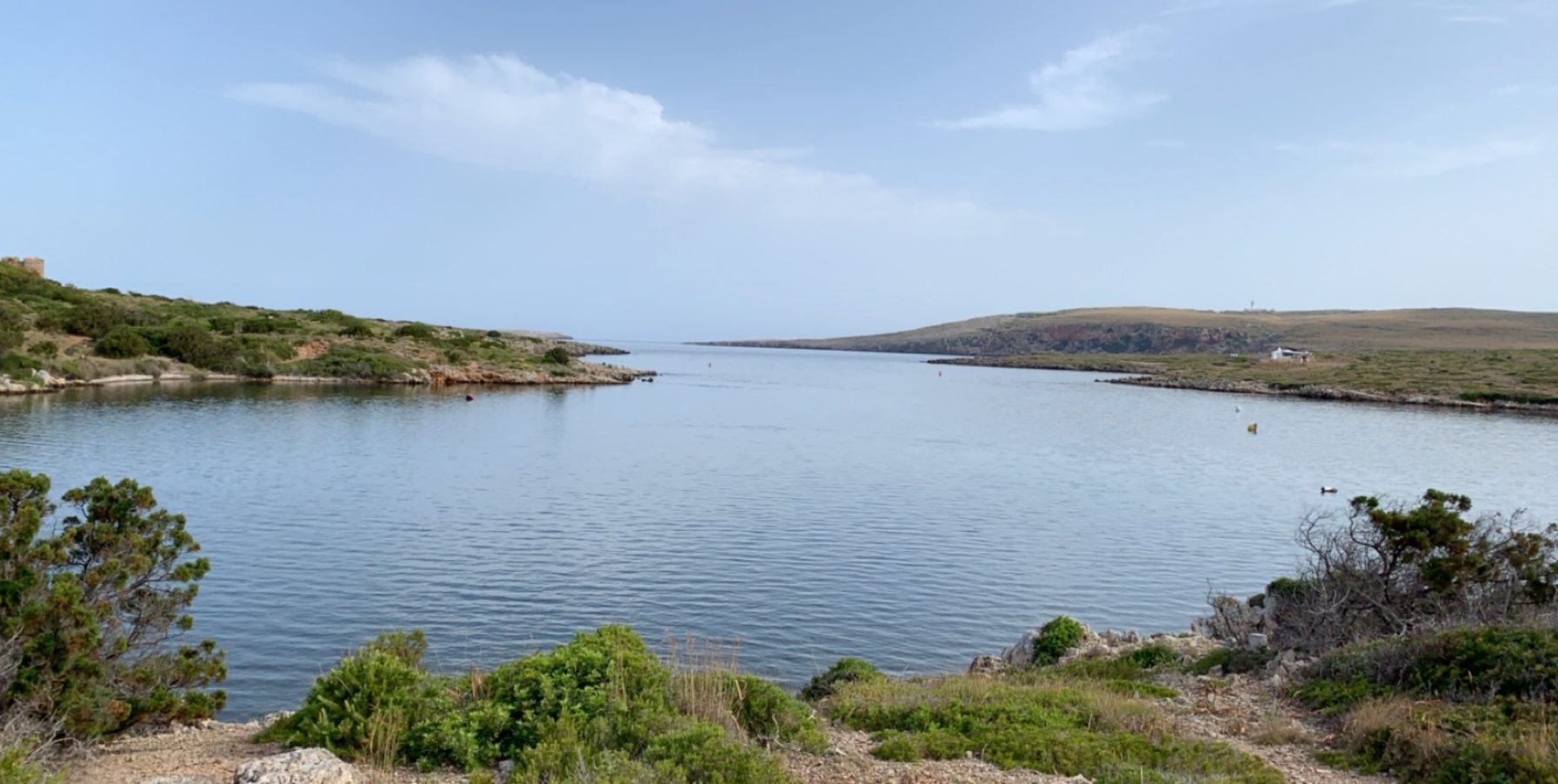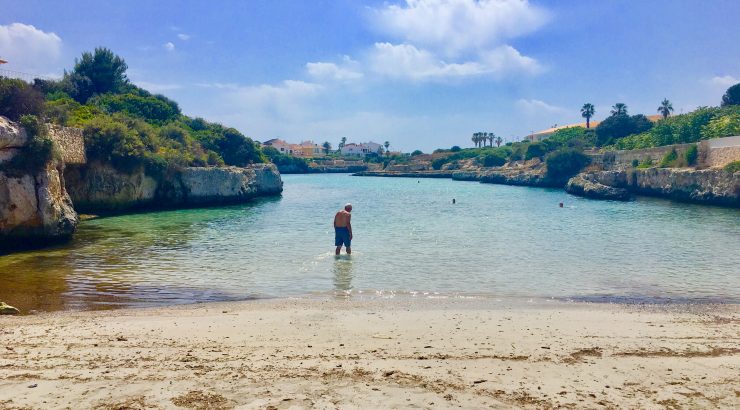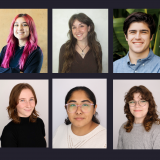Annabelle Koeber Travels to Mediterranean Sea Research/Creative Grant Recipient Talks to us About her Experience
August 6, 2019
Annabelle Koeber (‘BA in Anthropology, BA in Sociology, ’20,) was awarded an Undergraduate Student Scholarly Research/Creative Grant, where she recently traveled to Spain on The Island of Menorca for field school. Koeber conducted research in an archaeology program for beginners, learning how to work in the field, while gaining the experience and skills needed for her future in this field of work. Our roving reporter did a quick interview with Koeber about her time in Spain.
Tell me about the day you arrived on Menorca
Once I arrived on Menorca and made it to my residence, I started to meet the other students involved in the program, there were 11 of us. I was the only one who was doing the underwater archaeology though. Most of us were women who had just finished our junior or senior year of college. There were two people in their 30s with kids who took the role of a “big sibling” and a man in his mid-50s who we dubbed “sorority dad” immediately. He was an aerospace engineer and currently working as a professor, who decided to change the course of his career. I realized quickly that I connected with this group of archaeologists faster than any other group of people I’ve have ever encountered.
After the first dinner together a group of us went out to get to know each other and I learned that I had so much in common with these individuals. Not only in our interests, but our world views. All these people were independent travelers with a thirst for adventure and knowledge, and so incredibly generous, kind, and funny. There was one afternoon that we spent huddled together trying to figure out what animal, extinct or otherwise, had left its bones on a site which focused on the mass graves of humans. Admittedly, it was a quirky bunch of individuals, but I genuinely connected with so many of them and enjoyed their presence greatly on this journey of field school.
You had to get PADI certified, right? How did that go?
The first part of the program involved me getting my PADI certification since I had never scuba dived before. Jumping into the water was terrifying  because I had to simultaneously navigate the heavy and awkward equipment while also remembering to jump into the water correctly so I didn’t hurt myself or damage the equipment. Although I soon got comfortable with jumping into the water, the initial going under was a bit harder to get used to. The process of releasing the air in the regulator while also breathing out and sinking into the water, has such an unfamiliarity that seems to go against human instinct. The hardest part (for me) when scuba diving was “rewiring” my brain to what is possible underwater.
because I had to simultaneously navigate the heavy and awkward equipment while also remembering to jump into the water correctly so I didn’t hurt myself or damage the equipment. Although I soon got comfortable with jumping into the water, the initial going under was a bit harder to get used to. The process of releasing the air in the regulator while also breathing out and sinking into the water, has such an unfamiliarity that seems to go against human instinct. The hardest part (for me) when scuba diving was “rewiring” my brain to what is possible underwater.
When we first got to the bottom, I started to learn the survival skills I would need such as taking out the regulator from my mouth, let it go, find it, put it back in, all of which I had to do while still breathing out because it is dangerous to hold your breath while scuba diving. The hardest thing for me to learn, however, all centered around having to take off my mask. I found it difficult to open my eyes underwater and not hold my nose closed, which is what I usually did. So, the task to train my brain not to panic or breathe in water, and to focus on breathing through my mouth wasn’t easy to accomplish.
Did you see anything exciting while training in the ocean?
On my first open water dive my instructors took me to a place in the ocean where hundreds of pregnant manta rays were. There were so many of them and they would swim so close to me that I could touch them. This was the best part of the training and the next day I finished all the requirements needed and I was PADI certified. It was a very rewarding experience (enjoyable even if at times I was a little scared). My first full day on Menorca was so amazing that I didn’t really want to come back ever. I just wanted to live on an island in the Mediterranean and scuba dive.
When were you able to begin your research?
The next day I was able to dive on the site. I was stunned by how many artifacts we found, including the most significant artifact of the site, the rim of amphorae, or a Roman vase, that was unbroken, as far as we can tell. The rest of the vase could not be seen because it was covered and surrounded by posidonia, which is an endangered plant and is rather strong and can grow around anything.
All of my underwater dives were exciting adventures. The sheer volume of artifacts that lay on the ocean floor was an awe inspiring experience for me. One dive I was able to lead a radial survey that allowed me to find handles, pivots, and other significant spots. All of which allowed me to (most likely) be the first one to touch the old artifacts in over 2,000 years. I photographed and mapped what we found, including an ancient anchor (it can be hard to recognize an anchor so old). The finds I made with my instructor at the site led to the conclusion that this was definitely the site of a shipwreck and most likely more than one cargo ship.
Overall, what did you think about this experience?
I got to do more on this trip than I would have ever been able to imagine. I learned so much from the intensive instruction on underwater archaeology, shipwrecks, mapping, and the history and importance of Menorca. I also gained a lot of confidence with what I want for my future, where I’m headed, and where I am now. The biggest change in myself may just be that I am now ready to graduate college and for all the adventures that lie ahead. I made some great friends that I hope to be able to see again and I had a lot of unforgettable experiences. The self-reflection, self-discovery, experiences, and adventures of this trip has made it my favorite part of my college experience, so far.





